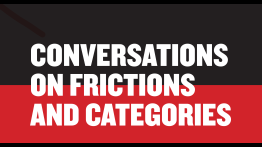Leo Riegert, Jr., “1/64th by Blood, and You Call Yourself a Native American?”
Thursday, April 21, 2022, 2 - 3pm

A certificate stating Leo Riegert, Jr., is the descendant of an enrolled member of the Minnesota Chippewa Tribe will serve as a springboard for raising questions of belonging that arise from this apparently straightforward document—questions that are both political and personal. Riegert, Jr., will discuss the quandaries of using blood in determining Native American citizenship and identity, historically and today, as well his own evolving sense of what it means for him to be “Indian.” This paper is part of a larger project that explores his personal experience growing up in two cultures—one Native American and indigenous, one German Catholic and immigrant— as well the relationship between that personal history and his academic work on German Jews.
This program is open to Cooper Union students, faculty, and staff via zoom. Please contact the HSS Dean's Office for zoom details.
Leo Riegert, Jr., received his Ph.D. in German from the University of Minnesota and is Associate Professor of German at Kenyon College. His work on German-Jewish literature and identity, and particularly on the writings of Karl Emil Franzos, has appeared in the German Quarterly and the Yearbook of the Association of European Jewish Literature Studies. An essay on “Uwe Timm’s In My Brother’s Shadow” was part of a volume he co-edited entitled, Thinking and Practicing Reconciliation: Teaching and Learning through Literary Responses to Conflict (Cambridge Scholars Press, 2013), and his article, “Blood, Boden and Belonging,” appeared recently in an edited collection called On Being Adjacent to Historical Violence (Irene Kacandes, ed., De Gruyter Publishing, 2021)




